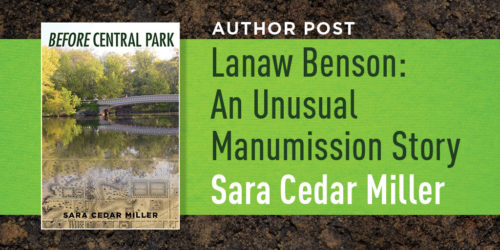Announcing the 2022 Columbia University Press History Catalog

Click on the down arrow above to download the PDF.
Letter from the Editors:
We are pleased to present the 2022 history catalog from Columbia University Press. We have a slate of new books that interrogate the lasting global legacies of war and conflict, hidden histories of New York, American POWs in the Cold War, and more.
Our latest releases in global history examine the afterlives of war and the stories we tell about them. In Global Easts: Remembering, Imagining, Mobilizing, Jie-Hyun Lim unpacks the global history of memory in the postwar twentieth-century from Eastern Europe to East Asia, exploring the transcultural bonds created by genocide, mourning, and political resistance. Eva-Maria Muschik’s Building States: The United Nations, Development, and Decolonization, 1945–1965 takes a bird’s-eye view of this same period, demonstrating the crucial role of international organizations in forming modern states after World War II. On the other hand, Jonathan Wyrtzen’s Worldmaking in the Long Great War: How Local and Colonial Struggles Shaped the Modern Middle East complicates this notion, arguing that local actors’ ambitions in the years leading up to and following the First World War were integral to creating the divisions, borders, and complexities that persist in the region to this day. Together, these books ask: what world did our modern global wars really create?
We have several new titles in American history, New York City history, and the history of American foreign relations. Lost in the Cold War: The Story of Jack Downey, America’s Lon-gest-Held POW compellingly recounts John T. Downey’s twenty-three years in a Chinese prison and the aftermath of his return to the United States. The Essential Writings of Vannevar Bush contains the most prescient and illuminating writings of the man who has been called the “Father of Silicon Valley.” In Before Central Park, the park historian Sara Cedar Miller has written a biography of the land that would become America’s most iconic public space. And in Buried Beneath the City: An Archaeological History of New York, a team of archaeologists explore what artifacts found beneath the streets of New York City tell us about its earlier residents.
We are also pleased to announce a new book series covering United-States-in-the-world histories: Global America, edited by Jay Sexton and Sarah B. Snyder. Books in this series will explore America’s global encounters, including how external forces have shaped the development of the United States and vice versa; why American encounters with the wider world have produced volatility and crises; and the shifting contours of U.S. power over time. Collectively, this series will analyze the global history of the United States from a variety of perspectives and methodologies.
We are proud to publish these groundbreaking books in history and we hope you enjoy reading them.
Sincerely,
Caelyn Cobb, editor for global history
Stephen Wesley, editor for U.S. history
Categories:American Historical AssociationCatalogsColumbia University PressHistorySociety for Historians of American Foreign Relations
Tags:Amanda SutphinBefore Central ParkBuilding StatesBuried Beneath the CityCaelyn CobbEva-Maria MuschikG. Pascal ZacharyGlobal EastsH. Arthur BankoffJack Lee DowneyJessica Striebel MacLeanJie-Hyun LimJohn T. DowneyJonathan WyrtzenLost in the Cold WarNan A. RothschildSara Cedar MillerStephen WesleyThe Essential Writings of Vannevar BushThomas J. ChristensenWorldmaking in the Long Great War








